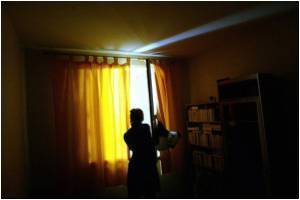Study says high school seniors with excessive daytime sleepiness have an elevated risk for depression

"It was surprising to see such a large prevalence of high school students facing strong depression and some depressive symptoms," said principal investigator Dr. Mahmood I. Siddique, clinical associate professor of medicine at Robert Wood Johnson Medical School in New Brunswick, N.J. "We need to target this population for appropriate diagnosis and treatment for both depression and sleep disorders."
The study also found that sleep deprivation was common among high school seniors. Students reported a mean total sleep time on school nights of only 6.1 hours and an increased sleep time of 8.2 hours on weekend nights. The American Academy of Sleep Medicine reports that high school students need a little more than nine hours of nightly sleep to maintain sufficient alertness during the day.
"The fact that high school students are also considerably sleep deprived is important," said Siddique. "Many students may be performing sub-optimally as far as academic performance goes, as depression and sleep deprivation are known to affect concentration and memory."
He added that this sub-optimal performance resulting from sleep problems and depression may be overlooked as a contributing factor in the decline of U.S. competitiveness in the global marketplace.
"The implication of this is that policy makers should devote more resources to the individual mental well-being of high school students rather than focusing all their attention on perceived systemic deficits such as better quality teachers and school infrastructure," said Siddique. "Regular sleep and depression screening should be encouraged in public high schools."
Advertisement
A study published in the January issue of the journal Sleep reported that adolescents with parental set bedtimes of midnight or later were 24 percent more likely to suffer from depression than teens with parental set bedtimes of 10 p.m. or earlier. The authors concluded that the results strengthen the argument that short sleep duration could play a role in the etiology of depression.
Advertisement
Source-Eurekalert















